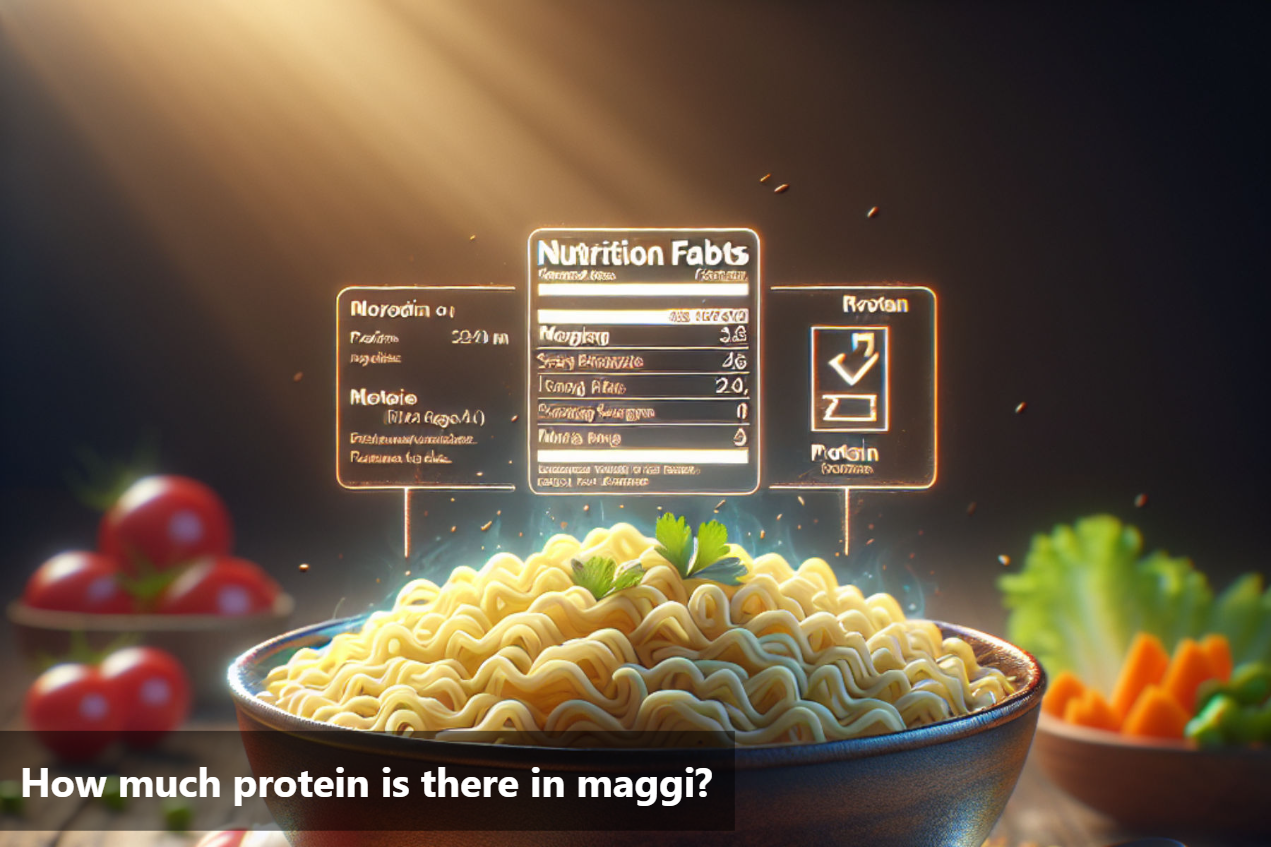
How much protein is there in maggi?
Maggi noodles have become a household name, known for their convenience and versatility in quick meal preparation. As a popular instant noodle brand worldwide, Maggi offers various flavors and types to suit different tastes and preferences. Despite being a convenient food choice, understanding the nutritional aspects of Maggi noodles, particularly the protein content, is crucial for making informed dietary decisions.
Protein is an essential macronutrient that plays a vital role in numerous functions within the body, such as muscle building, repair, and overall growth. In the context of Maggi noodles, evaluating the protein content becomes significant for individuals seeking to maintain a balanced diet. While Maggi noodles may not be a primary source of protein, they can still contribute to the daily intake based on the serving size consumed.
Understanding the protein content in Maggi noodles will shed light on its role in a balanced diet and how it can complement other sources of protein to meet daily requirements effectively.

Nutritional Information of Maggi Noodles
Nutrient |
Amount |
|---|---|
Total Carbohydrates |
40-60 grams |
Total Fat |
10-15 grams |
Protein |
6-10 grams |
Sodium |
1,000-1,400 milligrams |
Maggi at home made easy
Ingredients:
1 packet of instant Maggi noodles
1 1/2 cups of water
Maggi masala (included in the packet)
1 tablespoon of cooking oil
Optional: vegetables like peas, carrots, bell peppers, and onions (chopped)
Instructions:
Boil Water: In a saucepan, bring 1 1/2 cups of water to a boil.
Add Noodles: Once the water is boiling, break the Maggi noodles into the pan. If you're adding vegetables, this is the time to add them too.
Cook Noodles: Let the noodles cook for about 2 minutes, stirring occasionally. Be careful not to overcook them; you want them to be firm but cooked.
Add Masala: After 2 minutes, add the Maggi masala packet into the pan. Stir well to mix the masala evenly.
Cook Further: Allow the noodles to cook for another 1-2 minutes until they reach your desired consistency. Keep stirring occasionally to prevent sticking.
Serve: Once the noodles are cooked, turn off the heat. Transfer the Maggi noodles to a serving bowl.
Optional Garnish: You can garnish your Maggi noodles with chopped coriander leaves or grated cheese if desired.
Enjoy: Your homemade Maggi noodles are ready to be enjoyed! Serve hot and savor the deliciousness.
Health Implications of Consuming Maggi Noodles
Convenient Meal Option: Maggi noodles offer a quick and easy meal, popular for their convenience.
-
Protein Content:
A serving of Maggi noodles (70g) contains about 7 grams of protein.
The protein content is relatively low compared to other protein-rich foods.
-
Essential Macronutrient:
Protein is crucial for the body’s growth, repair, and overall function.
Maggi noodles should be complemented with other protein sources to meet daily requirements.
-
Nutritional Value:
It’s important to be mindful of the overall nutritional value of Maggi noodles.
They can be part of a balanced diet if consumed in moderation.
-
Balanced Diet:
Relying solely on Maggi noodles for protein may not provide sufficient nutrients.
Incorporating a variety of nutrient-rich foods is essential for optimal health.
Understanding the protein content of Maggi noodles and its role in your diet is crucial for making informed choices about your overall nutrition and well-being. Balancing convenience with a variety of nutrient-rich foods is key to maintaining a healthy lifestyle.

Maggi Noodles: Protein and Nutrition Facts
Understanding how much protein is in Maggi noodles allows consumers to make informed choices regarding their dietary preferences.
Furthermore, we have compared the protein content of Maggi noodles with other food sources, providing context for its significance in meeting daily protein requirements. This analysis aids in showcasing the versatility and convenience that Maggi noodles offer in terms of nutritional value.
Considering the health implications discussed, it is essential to approach the consumption of Maggi noodles with moderation and balance. While it can be a convenient option, ensuring a well-rounded diet with diverse protein sources is key to reaping the benefits of a wholesome meal.
While Maggi noodles can contribute to one's protein intake, it is advisable to pair it with a variety of nutrient-rich foods for a well-rounded diet. Balancing convenience with nutritional value is crucial for making informed dietary choices.
FAQs
-
How much protein is in a serving of Maggi noodles?
A typical serving of Maggi noodles contains about 9 grams of protein.
-
Is Maggi a good source of protein?
While Maggi noodles do contain some protein, they are not a significant source compared to other protein-rich foods like meat, beans, or tofu.
-
Can I increase the protein content of my Maggi noodles?
Yes, you can increase the protein content by adding ingredients like eggs, chicken, tofu, or beans while preparing your Maggi noodles.
-
Are there any protein variants of Maggi available?
Maggi offers some variants with added protein, such as Maggi Protein Rich noodles, which contain more protein than the regular ones.
-
How does the protein content of Maggi noodles compare to other instant noodle brands?
The protein content may vary slightly between different instant noodle brands, but generally, they provide a similar amount of protein per serving.
This Blog post is an initiative by Lo! Foods, to provide accurate and Nutritionist / Doctor approved information related to Health. Lo! Foods is India's leading brand for Everyday Functional Foods. Foods designed for specific Health conditions or Needs. Lo! Foods also runs India's largest range of Low Carb Healthy Cloud Kitchens, under the brand names of Lo!, ProteinChef, ATH (All Things Healthy) and DiabeSmart.















Leave a comment
Your email address will not be published.